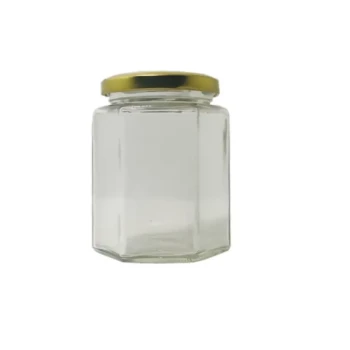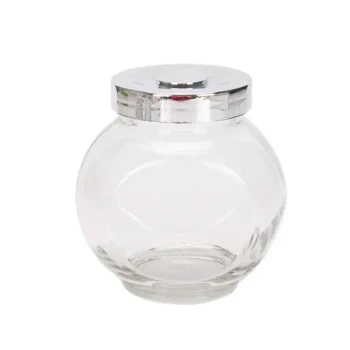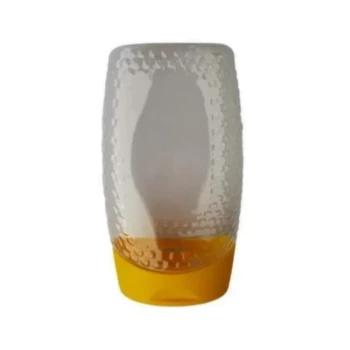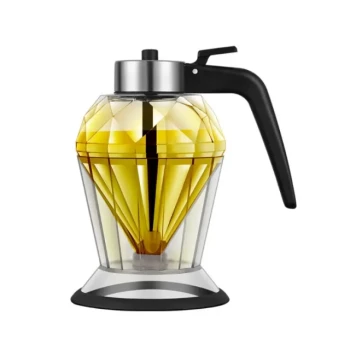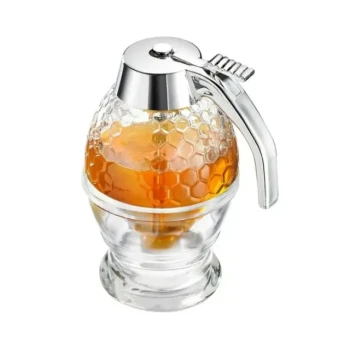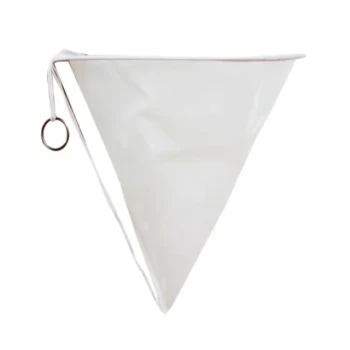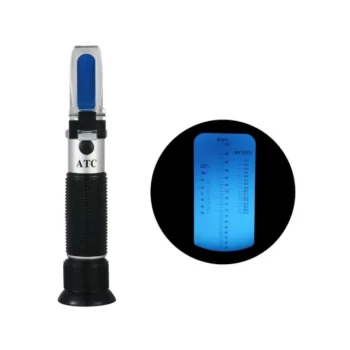In short, glass jars offer superior benefits in health safety, sustainability, and quality preservation. Because glass is chemically inert, it does not leach substances into food or drinks, and its non-porous surface protects against contamination while preserving the product's original flavor and aroma.
Choosing glass is a decision to prioritize purity and long-term environmental value. Unlike other materials, glass provides a perfect barrier that protects both the product inside and the health of the consumer, all while being infinitely recyclable without any loss in quality.
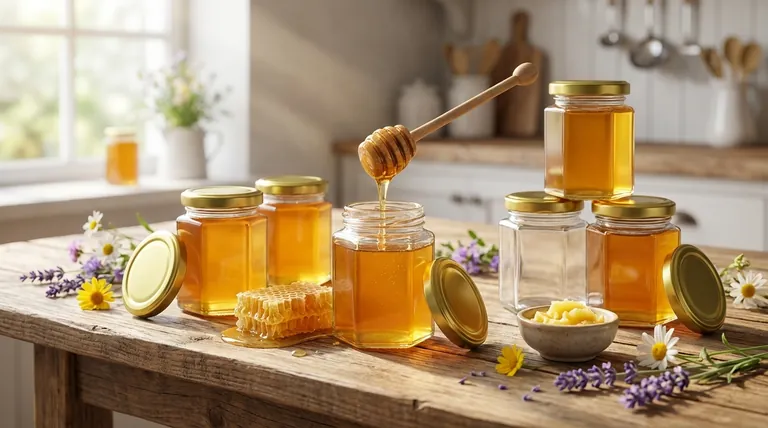
The Purity and Quality Advantage
When the integrity of the contents is the top priority, glass is the definitive choice. Its physical and chemical properties create an ideal environment for storage.
An Inert and Non-Porous Barrier
Glass is chemically inert, meaning it does not react with the contents it holds. There are no synthetic chemicals, like BPA or phthalates often found in plastics, that can leach into your food or beverages.
Its surface is also non-porous. This prevents the absorption of flavors, odors, or microscopic contaminants, ensuring the product inside remains exactly as intended.
Preserving Authentic Flavor
Because it doesn't react with or absorb what it holds, glass maintains the authentic taste and aroma of the product. Coffee stored in glass tastes like coffee, not like a plastic container from the day before.
This makes it the gold standard for products where taste is paramount, such as high-quality foods, beverages, and cosmetics.
Extending Shelf Life
Glass provides an exceptional seal against oxygen and moisture. This impermeability protects sensitive contents from degradation, keeping them fresh for longer and extending their effective shelf life.
The Sustainability Advantage
Glass is a champion of the circular economy, offering a clear path to reducing environmental impact through its lifecycle.
100% and Infinitely Recyclable
Glass is 100% recyclable and can be recycled endlessly without any loss of quality or purity. An old glass jar can be melted down and reformed into a new jar of the exact same quality, over and over again.
This "closed-loop" system stands in contrast to many plastics, which are often "downcycled" into lower-quality products and eventually end up as waste.
Reusable and Refillable by Design
The durability of glass makes it inherently reusable and refillable. A single glass jar can be washed and repurposed hundreds of times for food storage, canning, or other household needs, drastically reducing the demand for new single-use packaging.
Understanding the Trade-offs
While the benefits are significant, it is important to acknowledge the practical considerations of using glass packaging.
Weight and Transportation Impact
Glass is significantly heavier than plastic. This increases transportation costs and the associated carbon footprint for shipping, which can be a major factor for businesses distributing products over long distances.
Fragility and Breakage
The most obvious drawback of glass is its fragility. Breakage can lead to product loss, safety hazards, and cleanup challenges in both commercial and home environments.
Higher Initial Cost
Producing glass containers is typically more energy-intensive and expensive than producing comparable plastic containers. This higher upfront cost can be a barrier for some businesses and consumers.
Making the Right Choice for Your Goal
Your choice of packaging should align directly with your primary objective.
- If your primary focus is health and purity: Choose glass to ensure there is zero chemical interaction between the container and its contents.
- If your primary focus is environmental sustainability: Prioritize glass for its infinite recyclability and the potential for a long-term reuse and refill system.
- If your primary focus is preserving product quality and flavor: Use glass to provide the ultimate barrier that protects taste, aroma, and freshness.
Ultimately, selecting glass is an investment in the uncompromised quality of what's inside and the long-term health of our planet.
Summary Table:
| Advantage | Key Benefit |
|---|---|
| Purity & Quality | Chemically inert, non-porous, preserves authentic flavor, extends shelf life. |
| Sustainability | 100% and infinitely recyclable, durable and reusable by design. |
| Trade-offs | Heavier, fragile, higher initial cost compared to plastic. |
Ready to package your products with purity and sustainability?
At HONESTBEE, we understand that commercial apiaries and distributors need packaging solutions that protect product integrity and align with eco-conscious values. Our wholesale-focused operations supply high-quality glass jars perfect for honey, beeswax products, and more, ensuring your goods are presented in the safest, most sustainable container available.
Contact us today to discuss your packaging needs and discover how our wholesale glass jar solutions can add value to your brand and operations.
Visual Guide
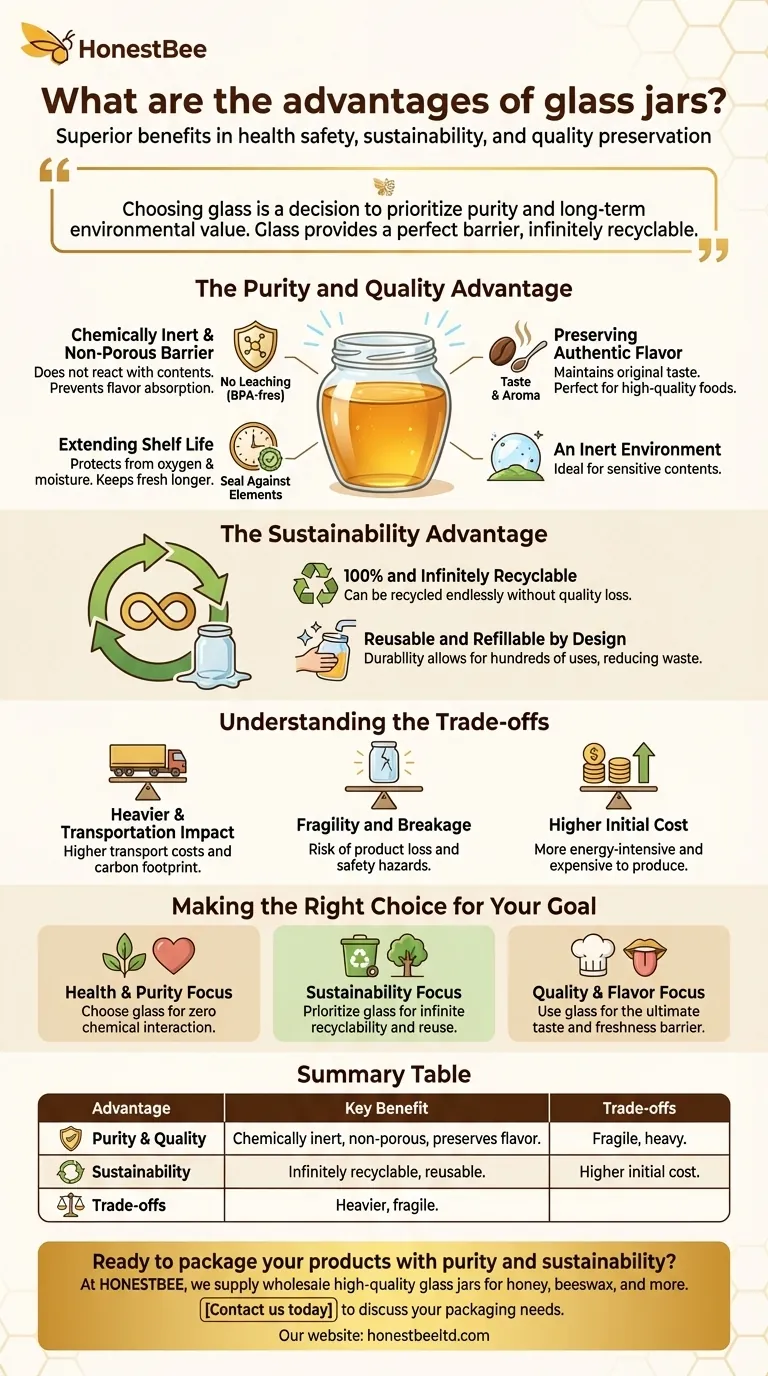
Related Products
- Hexagonal Glass Honey Jars with Metal Lug Caps Elegant Versatile Packaging
- Classic Drum Shaped Glass Honey Jar with Airtight Lid
- Inverted Squeezable Honey Jar with No Drip Flip Top Cap for Easy Pouring
- Premium Diamond-Faceted Glass Honey Dispenser
- Plastic Honey Gate Spout with Wing Nut for Beekeeping Honey Bucket
People Also Ask
- How do glass and plastic containers compare in terms of material cost and cost per use? Optimize Your Packaging ROI
- How do honey containers differ in capacity between fluid and weight ounces? Master Honey Packaging Standards
- Why is the use of clip-top glass bottles necessary for the collection and pre-treatment of honey samples? Protect Purity
- Why is the use of high-sealing airtight lids essential for honey packaging? Protect Purity and Prevent Fermentation
- What functions do specialized small-capacity filling bottles serve? Protect and Premiumize Your Stingless Bee Honey
- How do honey bottles contribute to the preservation of honey products? Secure Quality and Commercial Value
- What are the proper methods for storing and packaging honey? Preserve Freshness and Quality Effortlessly
- What are the benefits of squeeze bottles for honey packaging? Unlock Mess-Free Convenience & Control
